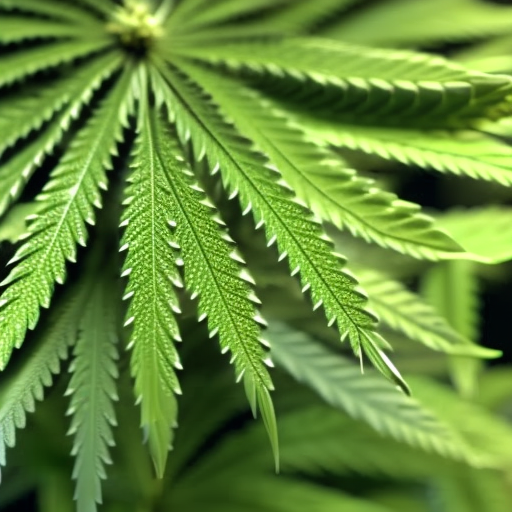
The hemp-derived cannabinoid market is currently experiencing a surge in popularity, but experts are warning consumers to educate themselves about the differences between delta-8 THC and delta-9 THC products. Delta-8 THC was first partially synthesized in 1941, but controversy still surrounds this compound due to its extraction and conversion methods.
According to Ryan Vandrey, Ph.D., a professor at the Johns Hopkins School of Medicine specializing in the behavior pharmacology of cannabis, delta-8 THC and delta-9 THC are chemically almost identical. However, a slight difference in their chemical structure results in different interactions with the body’s cannabinoid receptors.
The majority of delta-8 THC on the market is converted from CBD using a natural solvent and an acid catalyst. However, there is ongoing debate within the industry about whether delta-8 should be classified as synthetic or natural.
Vandrey explains that delta-9 THC is stronger than delta-8 THC, so consumers may wonder why they would choose delta-8 over delta-9. Delta-8 is often referred to as “diet weed” because it is less potent at interacting with the cannabinoid receptors, resulting in a less intense high compared to delta-9.
There have been discussions on platforms like Reddit about whether or not delta-8 THC gets users high or if it is a scam. The consensus among users seems to be that it has fewer psychedelic effects compared to delta-9 THC.
Sales of hemp-derived cannabinoids, such as CBD, are surpassing those of adult-use cannabis and are comparable to the craft beer industry. This thriving market shows no signs of slowing down.
While representatives from NORML have stated that delta-8 is not their primary concern, they emphasize that residual chemicals and other byproducts in gas station hemp products pose greater risks. Experts warn about compounds like THCO, which they believe can cause real injuries.
Peter Grinspoon, M.D., a primary care doctor at Mass General Hospital and an instructor at Harvard Medical School, supports the use of medical cannabis. However, he states that state medical cannabis programs do a better job of vetting ingredients compared to shops selling delta-8 products. The lack of regulation and regulatory incoherence across different branches and levels of government make it challenging to determine which hemp-derived cannabinoids are safe.
The 2018 Farm Bill unintentionally created a loophole for hemp-derived products with psychoactive effects. The FDA has warned that delta-8 and similar cannabinoid derivatives have psychoactive and intoxicating effects that may be dangerous to consumers. They have called on Congress to establish regulations for these products, as they may contain harmful contaminants.
Delta-8 THC is only found in trace amounts in nature, so it must be converted from CBD to produce enough for use in products. The first partial synthesis of delta-8 was reported in 1941 by Roger Adams and a team of researchers at the University of Illinois. This process involves refluxing CBD in an organic solvent with an acid catalyst. In a regulated environment, these reactions would be carried out by trained chemists to ensure there are no harmful by-products left in consumer products. However, the hemp industry is currently under-regulated, with no requirements for lab testing.
In conclusion, consumers should be aware of the differences between delta-8 THC and delta-9 THC when choosing hemp-derived cannabinoid products. The industry’s lack of regulation and potential for harmful contaminants highlight the importance of informed decision-making and thorough research before purchasing these products.

